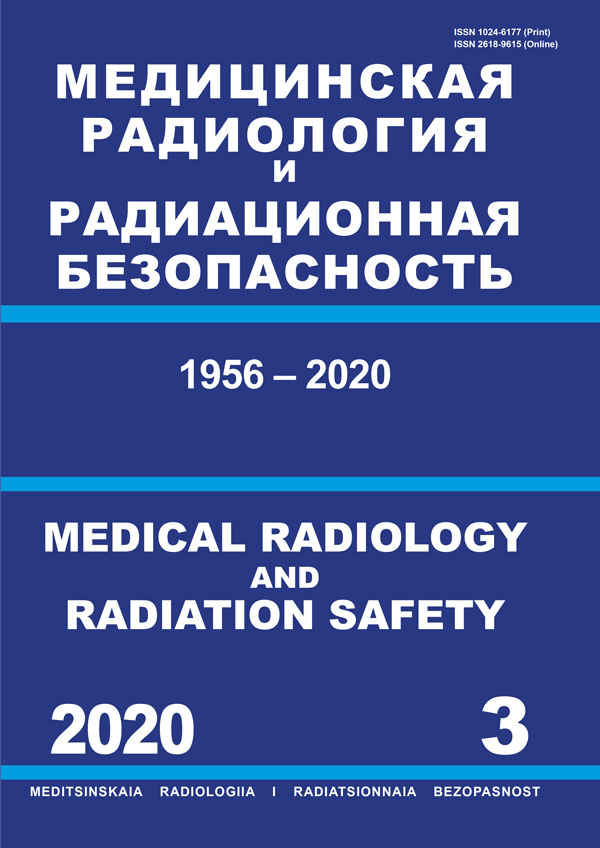CSCSTI 34.49
Purpose: Study of uridylic nucleotides content and aspartate carbamoyltransferase which was a key enzyme on the pathway for the synthesis of pyrimidine nucleotides in tissues of irradiated animals upon administration of orotic acid and perftorane was conducted. Material and methods: Studies were performed on random-bred albino rats subjected to a single γ-ray exposure at a total dose of 6 Gy. Orotic acid was injected as potassium salt in a dose of 60 mg / kg, perftoran salt in a dose of 1 ml / 100 g water. Results: A decrease in the content of UTP and UDP, as well as an increase in UMP after irradiation, especially on the 7th day, was established. The most pronounced changes in the studied biochemical parameters take place in the mucosa of the small intestine. The administration of orotic acid and perftorane to irradiated animals contributes to a significant correction of both the nucleotide content and the activity of aspartate carbamoyltransferase. Conclusion: The radiation leads to some decrease in the content of UDP and UTP. Changes in the content of nucleotides and activity of aspartate carbamoyltransferase in the mucosa of the small intestine are more pronounced in comparison with liver tissue. The combined administration of orotic acid and perftorane promotes the normalization of the content of nucleotides, and the activity of aspartate carbamoyltransferase in the liver and mucous membrane of the small intestine of irradiated animals.
uridylic nucleotides, aspartate carbamoyltransferase, irradiation, orotic acid, perftoran, liver, small intestine, mucosa
В связи с возрастающим использованием различных видов ионизирующих излучений и радиоактивных изотопов в народном хозяйстве, медицинской науке и практике здравоохранения, изучение биохимических механизмов их действия на организм представляется одной из наиболее актуальных задач современной медицинской радиологии и радиационной биохимии.
Группа уридиловых нуклеозидфосфатов играют важную роль в клеточном метаболизме. В частности, эти нуклеотиды являются компонентами различных видов рибонуклеиновых кислот (РНК), из них синтезируются все другие нуклеотиды пиримидиновой группы – цитидиловые и тимидиловые, являющиеся структурными компонентами ДНК клетки. Уридиловые нуклеотиды также участвуют в синтезе гликогена, взаимопревращениях различных сахаров, выполняют роль коферментов, оказывая регуляторное влияние на различные физиологические процессы в организме.





